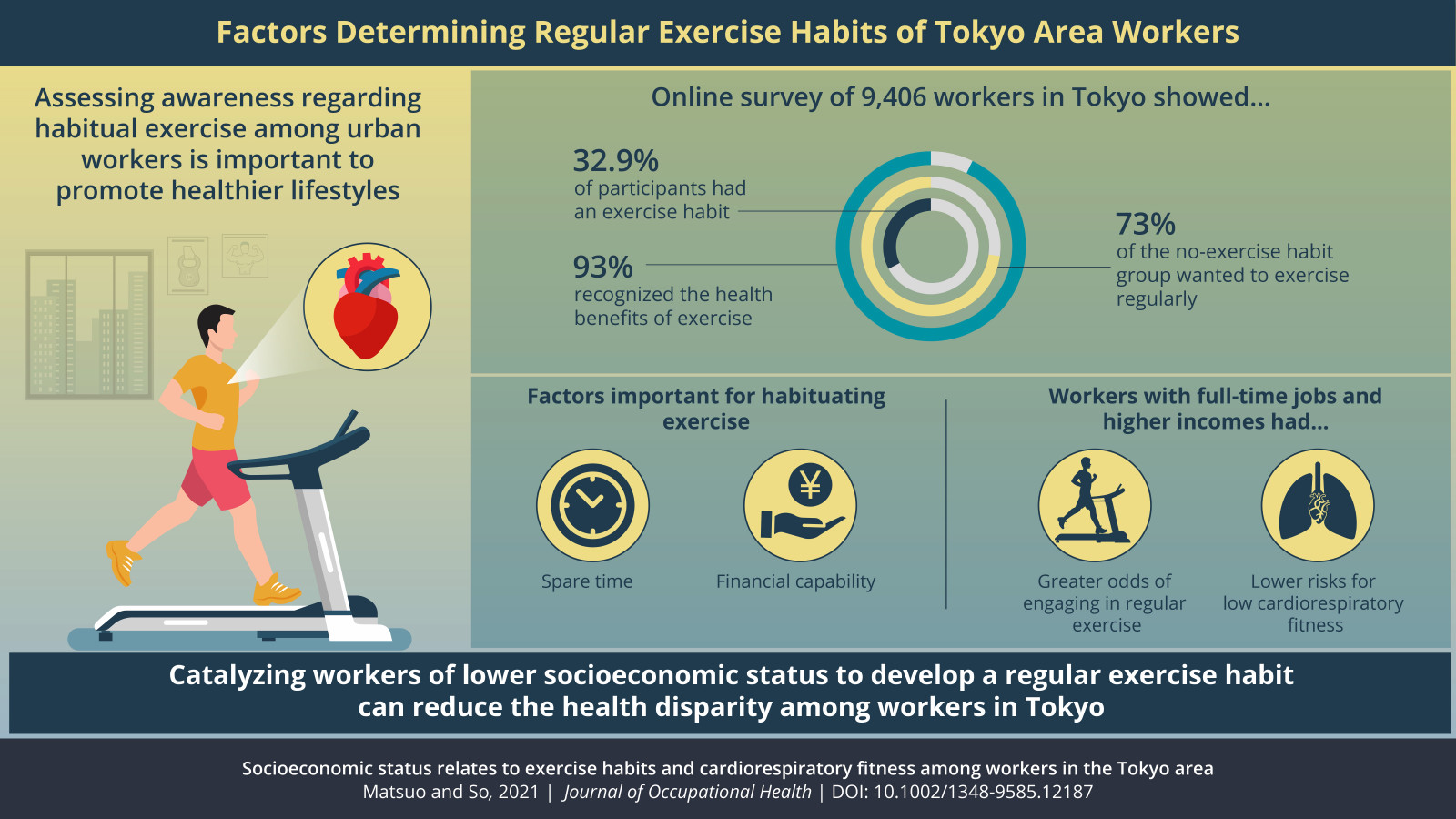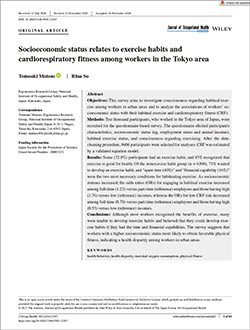#0002 Sweating on a Dime: Socioeconomic Disparity Influences Habitual Exercising among Urban Workers in Tokyo

Importance of cardiorespiratory fitness as habitual exercise
With the population of Japan aging and declining, it is important for the country’s government to ensure its workers maintain their health and physical fitness for continued national economic prosperity. But because Japan is a high-income, mechanized country, there is reason to believe that many workers, especially in urban areas, lead sedentary lives. They are likely to possess lower cardiorespiratory fitness (CRF), which is a major risk factor for mortality. Habitual exercise is extremely important in such societies.

Socioeconomic status as a determinant for the habitual exercise
However, are today’s workers conscious of the importance of habitual exercise? To find out, researchers in Japan conducted a cross-sectional, web-based study of 9406 workers in the Tokyo region, who were between 20 and 65 years of age and worked for at least 6 hours per day for a minimum of 3 days per week. The researchers enquired about the workers’ demographics, work status, and exercise habits to explore links between their socioeconomic status, exercise habits, and CRF. Body mass index (BMI) and CRF for each participant was calculated using validated equations.
It was found that majority of the workers (93%) knew that exercising impacted health positively, even if 67% of them did not habitually exercise, that is, they did not continuously exercise for 30 minutes, at least 2 days a week, for over a year. On the bright side, 73% of the non-exercising group did wish to exercise habitually. The two most necessary conditions for exercising habitually were identified as “spare time” and “financial capability”. Significantly, the odds of engaging in habitual exercise was higher among full-time employees (vs. part-time) and among those with high incomes (vs. low incomes), while the risks of low CRF were simultaneously lower among these groups.
This study indicates that the socioeconomic status of workers in the Tokyo region determine whether they are in a position to exercise habitually, despite most of them wanting to do so. Future research should focus on addressing this health disparity among urban workers.
Link to the original journal article:
https://onlinelibrary.wiley.com/doi/full/10.1002/1348-9585.12187
Title of the journal article:
Socioeconomic status relates to exercise habits and cardiorespiratory fitness among workers in the Tokyo area
Authors:
Tomoaki Matsuo, Rina So





